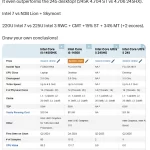Whether we like it or not, whether we accept it or not – Autism diagnosis rates are rising not only in Nigeria but globally.
In this instance, ignorance is not bliss; neither is denial a sustainable option. Inclusion in every area of society is the only way forward.
This could be a long dissertation full of lofty ideas and principles that ultimately remain unimplemented and help no one. In real-life practical terms, how can inclusion be achieved?
An approach on multiple fronts encompassing education, awareness, policy change, community engagement and healthcare enhancements is the only way this could become possible.
Let us look at these sectors in more details to encourage inclusivity for people with autism in Nigeria. It must be noted that these same solutions could be applied across the board to other challenges.
Awareness and Education Campaigns
People fear, stigmatise and demonise what they do not understand. It is, therefore, imperative that the first step should be to make the general populace aware of what autism means.
The knowledge that it is not contagious, not the fault of the parents and certainly not a death sentence, would be a major point of relief to families as well as the community.
Key ways to create this awareness would be:
Public Education: Awareness campaigns in different Nigerian languages should be launched to educate the general public about autism, foster a sense of community and dispel myths/superstitions.
Media Representation: People with autism should be included in all aspects of media including adverts, TV shows, movies, radio and news outlets.
Sensitivity and Inclusion Training for Key Professionals: Public service professionals such as teachers, healthcare workers, law enforcement etc., should be provided with proper training on inclusion policies and sensitised as to appropriate methods of engagement with people living with autism.
Healthcare and Diagnostic Services
Early intervention is key to integration and inclusion so it makes perfect sense for hospitals/ health care institutions to play an integral role in achieving inclusion.
Early Diagnosis and Intervention: Paediatricians and healthcare providers should be trained to recognise the signs of autism early. An early diagnosis of autism and subsequent implementation of relevant treatment/therapy can make all the difference, thereby helping the children reach their full potential.
Availability of Therapists: Increase access to speech, occupational and behavioural therapists who specialise in autism treatment.
Affordable and Accessible Healthcare: Therapy and healthcare services for individuals with autism should be affordable and accessible to families across all states of Nigeria. This is particularly applicable to rural areas as well as lower-income families.
Education
Inclusive Education: Mainstream schools should be encouraged to have strong special educational needs departments to cater to children with autism in both private and public schools. This will help neurotypical children and adults learn how to interact respectfully and supportively with individuals with autism.
Support for Teachers: Train teachers in Autism Spectrum Disorders (ASD) to better understand and support children with autism in the classroom.
Establishing Special Schools and Centres: More special schools that are equipped with appropriately trained staff and world-class facilities are available to children with autism.
Employment and Economic Opportunities
A lot of focus is always directed towards children with autism, but what happens when they become adults? How can we ensure that adults with autism are not only included but also productive and engaged members of society?
Create employment activities: A lot of individuals with autism have unique talents that can be fully utilised in the workplace. Inclusive hiring policies will ensure that such individuals are given a fair chance to fill such roles. Training on how to create autism-friendly workplaces can also be provided.
Supportive Work Environment and Policies: The workplace can be tweaked to provide a conducive atmosphere to ensure that people with autism can thrive. Technological aids, sensory areas (which could be used by all staff) etc are ways to achieve this.
Entrepreneurship opportunities
Frameworks and opportunities should be readily available to support autistic individuals with an entrepreneurial bent.
Government Legislation and Policy
Disability Rights Laws such as the Discrimination Against Persons with Disabilities (Prohibition) Act 2018 should be strengthened and stronger penalties put in place for defaulters.
Private Sector Engagement: Government agencies should actively engage with autism organisations and experts for guidance in the development of policies to support the needs of people with autism.
Government endorsement will also give such organisations the credibility and backing necessary for inclusion policies to become more mainstream.
Autism-Friendly Infrastructure: Public spaces such as transportation hubs, healthcare facilities, religious organisations, supermarkets, recreational spaces (parks, libraries etc) should be designed and/or updated to accommodate the needs of people with autism.
READ ALSO: Fidson healthcare reports N5.78bn profit for 2024
Community Support and Advocacy
Autism Support Groups: Promotion of support groups for families and individuals living with autism should be actively encouraged. Information, advice and emotional support can be made readily available through these while fostering a sense of community.
Nigerians have a warm, welcoming and nurturing culture. With the right education, policies and mindset, inclusion can become a reality for not only people with autism but other disabilities whilst making sure that truly no individual is left behind or made to feel anything less.
Mudi Nwachukwu is the founder and convener of the Special Educational Needs and Therapy Empowerment (SENTE) Conference and Trade Fair – an event designed to empower parents and caregivers of children with special needs. She is also the Chief Executive Officer of Rhimamory Resources – Nigeria’s first inclusive resource store.
Support PREMIUM TIMES’ journalism of integrity and credibility
At Premium Times, we firmly believe in the importance of high-quality journalism. Recognizing that not everyone can afford costly news subscriptions, we are dedicated to delivering meticulously researched, fact-checked news that remains freely accessible to all.
Whether you turn to Premium Times for daily updates, in-depth investigations into pressing national issues, or entertaining trending stories, we value your readership.
It’s essential to acknowledge that news production incurs expenses, and we take pride in never placing our stories behind a prohibitive paywall.
Would you consider supporting us with a modest contribution on a monthly basis to help maintain our commitment to free, accessible news?
Make Contribution
TEXT AD: Call Willie – +2348098788999
© Premium Times









